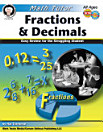Inferno SparkNotes Literature Guide
មេសា 2014 · Hachette UK
សៀវភៅអេឡិចត្រូនិច
112
ទំព័រ
family_home
មានសិទ្ធិ
info
reportការវាយតម្លៃ និងមតិវាយតម្លៃមិនត្រូវបានផ្ទៀងផ្ទាត់ទេ ស្វែងយល់បន្ថែម
អំពីសៀវភៅអេឡិចត្រូនិកនេះ
Inferno SparkNotes Literature Guide by Dante Alighieri
Making the reading experience fun!
When a paper is due, and dreaded exams loom, here's the lit-crit help students need to succeed! SparkNotes Literature Guides make studying smarter, better, and faster. They provide chapter-by-chapter analysis; explanations of key themes, motifs, and symbols; a review quiz; and essay topics. Lively and accessible, SparkNotes is perfect for late-night studying and paper writing.
Includes:
Making the reading experience fun!
When a paper is due, and dreaded exams loom, here's the lit-crit help students need to succeed! SparkNotes Literature Guides make studying smarter, better, and faster. They provide chapter-by-chapter analysis; explanations of key themes, motifs, and symbols; a review quiz; and essay topics. Lively and accessible, SparkNotes is perfect for late-night studying and paper writing.
Includes:
- An A+ Essay—an actual literary essay written about the Spark-ed book—to show students how a paper should be written.
- 16 pages devoted to writing a literary essay including: a glossary of literary terms
- Step-by-step tutoring on how to write a literary essay
- A feature on how not to plagiarize
អំពីអ្នកនិពន្ធ
Born Dante Alighieri in the spring of 1265 in Florence, Italy, he was known familiarly as Dante. His family was noble, but not wealthy, and Dante received the education accorded to gentlemen, studying poetry, philosophy, and theology. His first major work was Il Vita Nuova, The New Life. This brief collection of 31 poems, held together by a narrative sequence, celebrates the virtue and honor of Beatrice, Dante's ideal of beauty and purity. Beatrice was modeled after Bice di Folco Portinari, a beautiful woman Dante had met when he was nine years old and had worshipped from afar in spite of his own arranged marriage to Gemma Donati. Il Vita Nuova has a secure place in literary history: its vernacular language and mix of poetry with prose were new; and it serves as an introduction to Dante's masterpiece, The Divine Comedy, in which Beatrice figures prominently. The Divine Comedy is Dante's vision of the afterlife, broken into a trilogy of the Inferno, Purgatory, and Paradise. Dante is given a guided tour of hell and purgatory by Virgil, the pagan Roman poet whom Dante greatly admired and imitated, and of heaven by Beatrice. The Inferno shows the souls who have been condemned to eternal torment, and included here are not only mythical and historical evil-doers, but Dante's enemies. The Purgatory reveals how souls who are not irreversibly sinful learn to be good through a spiritual purification. And The Paradise depicts further development of the just as they approach God. The Divine Comedy has been influential from Dante's day into modern times. The poem has endured not just because of its beauty and significance, but also because of its richness and piety as well as its occasionally humorous and vulgar treatment of the afterlife. In addition to his writing, Dante was active in politics. In 1302, after two years as a priore, or governor of Florence, he was exiled because of his support for the white guelfi, a moderate political party of which he was a member. After extensive travels, he stayed in Ravenna in 1319, completing The Divine Comedy there, until his death in 1321.
វាយតម្លៃសៀវភៅអេឡិចត្រូនិកនេះ
ប្រាប់យើងអំពីការយល់ឃើញរបស់អ្នក។
អានព័ត៌មាន
ទូរសព្ទឆ្លាតវៃ និងថេប្លេត
ដំឡើងកម្មវិធី Google Play Books សម្រាប់ Android និង iPad/iPhone ។ វាធ្វើសមកាលកម្មដោយស្វ័យប្រវត្តិជាមួយគណនីរបស់អ្នក និងអនុញ្ញាតឱ្យអ្នកអានពេលមានអ៊ីនធឺណិត ឬគ្មានអ៊ីនធឺណិតនៅគ្រប់ទីកន្លែង។
កុំព្យូទ័រយួរដៃ និងកុំព្យូទ័រ
អ្នកអាចស្ដាប់សៀវភៅជាសំឡេងដែលបានទិញនៅក្នុង Google Play ដោយប្រើកម្មវិធីរុករកតាមអ៊ីនធឺណិតក្នុងកុំព្យូទ័ររបស់អ្នក។
eReaders និងឧបករណ៍ផ្សេងទៀត
ដើម្បីអាននៅលើឧបករណ៍ e-ink ដូចជាឧបករណ៍អានសៀវភៅអេឡិចត្រូនិក Kobo អ្នកនឹងត្រូវទាញយកឯកសារ ហើយផ្ទេរវាទៅឧបករណ៍របស់អ្នក។ សូមអនុវត្តតាមការណែនាំលម្អិតរបស់មជ្ឈមណ្ឌលជំនួយ ដើម្បីផ្ទេរឯកសារទៅឧបករណ៍អានសៀវភៅអេឡិចត្រូនិកដែលស្គាល់។








